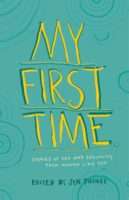Anonymous
The first time I started writing this, I gave a blow-by-blow account of the events of my miscarriage. While it may have given a picture, it didn’t convey the emotional pain of it. Now a month later, having read the account, I can see it as a stage of the process of dealing with loss. Getting to grips with what happened, running through the series of events to figure it out, make sense of something that as far as I’m concerned shouldn’t have happened, and still shouldn’t be.
I’m left with loss, anger and great disappointment. It was a risky pregnancy from the beginning—disconcordant twins—but despite the risk we dared to dream. We spent hours imagining our new lives as parents of twins. Debating names, thinking of the next steps, getting our excited heads around the very wanted, happy expansion of our love and family.
Then something went wrong and for two days, we shuffled from a doctor without ultrasound, to a doctor with ultrasound, to gynaecologist with even better ultrasound.
She confirmed that one of the twins had already gone, and that the other had no heartbeat. I was referred to a person whom my medical aid would pay for to do a D&C (where they scrape out your womb).
With varying levels of compassion, and with various bedside manners from people who helped us, we sunk into a cycle of hope and despair. It culminated in tears rolling down my cheeks as I sunk into the unconscious state of the general anaesthetic, probably the most alone and out of control I’ve ever felt in my life.
Waking up after the operation, my first concern was what happened to the tissue that would have become my babies. When I asked what did they did with it, the nurse replied immediately, comfortingly, that the tissue would be burned—not a proper burial, or any ceremony to mark my loss of dreams—but burned, so at least it wasn’t sitting in a bin somewhere, thrown away like a piece of rubbish. For some reason the distinction was, and still is, very important to me.
Then we had to start telling the people who had known about the pregnancy that we were no longer pregnant. It was a responsibility I abdicated, especially in the first couple of days. I didn’t want to speak to anyone, or have to deal with any sympathy when I knew sympathy was all most people had to offer. I didn’t want to have to talk about it to anyone. Most people have no idea of the extent to which the miscarriage still impacts on me, mostly because I won’t show, and I won’t tell.
Then when I did start talking, I got hit by an over-whelming response of people’s stories of their own loss of children, early miscarriages, stillborns, horrific experiences with doctors and medical staff, of the lack of choice, and many of their subsequent pregnancies.
What I’m left with is a sense that, like rape or domestic violence, miscarriage is so common in women’s lives, yet they keep silent. Women are at the mercy of doctors and other professionals who are vague about the impact of miscarriage. In my case, I wasn’t even told there were alternatives to a D&C operation (like waiting for the miscarriage to bleed out naturally, or taking medication to push the bleeding along).
Like a friend who shared her rage with me that, when she chose the option of medication that would initiate cramping and bleeding, her doctor told her she would experience routine cramping and pain, and fairly heavy bleeding. It turned out she had blood-splattering, earth-shattering pain that required medical attention. Like the other friend whose doctor gave induction drugs until the baby was killed. The caesar that followed resulted in stillbirth and then, to add insult to injury, she was stitched up so badly that she became infected and had to go back three times.
The doctors give vague information about allowing yourself time to mourn, and being aware of the impact of shifting hormones and a re-adjusting body. The mood swings, the overwhelming irritation that could make something as simple as a cutting a tomato the wrong way turn into an end-of-the-world event and result in crying. The vividness of nightmares and the shame of loss.
There is the silence, the veil of ‘secrecy’ that exists about how common this occurrence is, that the figures of between one in four, and up to 40% of pregnancies are known miscarriages (some never know, just have a heavy period). Until you start telling your story and you find out how common your experience is. And the thing that sucks—that makes absolutely no difference! In fact, it makes me feel like I need to deal with my grief that much more quickly, to learn to cope because other people do, all the time. While I don’t want to define myself by my loss,
I don’t want it to congeal into a major part of my identity and because of this, I’m struggling to allow myself room to feel, room to mourn, room to be angry that life has not turned out the way I thought it would. Guess I’m still learning that lesson in every way.
The writer is a fully recovered and expecting mother.


